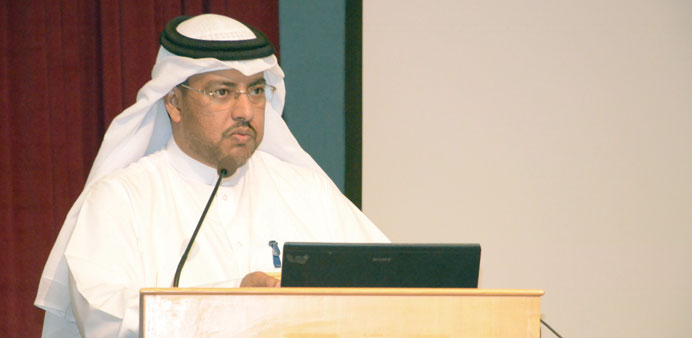By Ayman Adly/Staff Reporter
Integration and co-operation among universities, research centres and National Committee for the Prohibition of Weapons (NCPW) is key to achieving global safeguards against weapons of mass destruction (WMDs).
This was one of the observations made during the third WMD awareness workshop, held by NCPW at Qatar University (QU) yesterday.
The event saw the participation of students and academia from various institutions and organisations, including QU, Qatar Foundation for Education, Science and Community Development, Hamad bin Khalifa University, Community College Qatar and College of the North Atlantic - Qatar.
It was suggested that university students be constantly updated on developments such as international agreements on WMDs. They should also be aware of the efforts made by NCPW.
Brigadier General (Pilot) Hassan Saleh al-Nesf (pictured), NCPW deputy chairman, thanked the representatives of universities on behalf of Major General (Pilot) Nasser bin Mohamed al-Ali, NCPW chairman. He said spreading knowledge on related issues was important for achieving world peace. Consequently, the workshop aimed at getting university students and potential researchers involved in Qatar’s efforts to implement conventions against the proliferation of WMDs.
“Qatar’s efforts in spreading world peace and security were crowned in 2012 by the establishment of a regional centre for CBRN training in co-operation with the Organisation for the Prohibition of Chemical Weapons,” he said, stressing that training efforts would be undertaken in co-operation with various international and regional organisations to support world peace. Brig Gen (Pilot) al-Nesf described students as partners in this process – be it in terms of awareness or implementation of endeavours. This would ensure constant stability and peace in the country and build their capabilities to qualify for work in the chemical, biological and nuclear fields
and using them through peaceful application.

